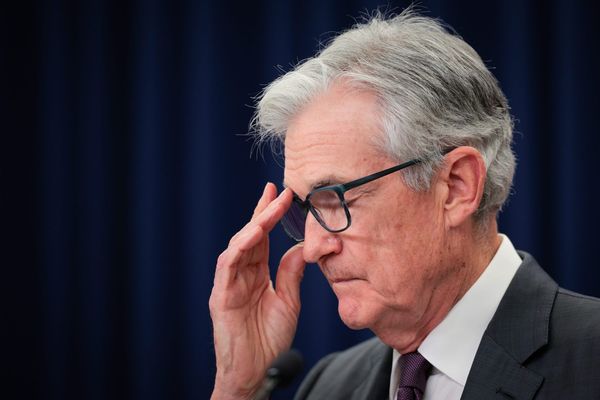Shockwave Medical CEO Doug Godshall says successful medical technology companies don't follow a formula. They build the right team.
"Maybe I'm lucky," jokes Godshall, who joined Shockwave Medical as CEO and president in May 2017. Since then, he built ShockWave into a world-class provider of equipment for heart treatments — and a top performer for investors.
But Shockwave's success is far from luck. Godshall, a veteran of the industry, joined Shockwave to speed up growth. He did it by crafting a strategy that gained speed as the company hit milestones.
Deliver Top Results Like The Shockwave CEO
The results have been stunning.
Godshall led Shockwave's highly successful initial public offering in March 2019. Shares jumped more than 560% since that time, topping the S&P 500's 42% rise.
He also launched Shockwave's Intravascular Lithotripsy device. It's for patients with calcified coronary artery disease. Shockwave's growth has exploded since regulators approved the device, called Shockwave C2, in February 2021. The company's sales are anticipated to hit $487 million in 2022, up from $43 million in 2019.
In some ways, Godshall's work at Shockwave is a second act. Shockwave's success follows Godshall's track record as CEO and director of HeartWare International for 10 years. Industry titan Medtronic bought HeartWare in August 2016 for $1.1 billion.
But Godshall stressed the key to his success building both companies boils down to teamwork.
"The most important thread between Shockwave and HeartWare is I had the good fortune of being surrounded by incredibly talented people, who maintained a remarkably high passion level for our mission," Godshall, 58, told Investor's Business Daily.
Keep Bureaucracy To A Minimum
Shockwave now has close to 1,000 employees, up from just 160 in 2018. But Godshall works hard to keep bureaucracy out.
Doing so starts with having the right people, which Godshall carefully picks. Less than half of the management teams at both Shockwave and HeartWare were still in place a year after Godshall started. Godshall assembled leadership teams that knew how to build thriving businesses.
But Godshall doesn't just hire people from big companies. He's looking for people who can manage a fast-growing firm. He brings in team members who can run a small company at the start, but pivot to bigger thinking when revenue starts pushing $500 million annually.
Focus On Your Core Technology
People are a big part of Godshall's strategy. But nothing happens without a good product.
Both Shockwave and HeartWare controlled technology that was "dramatically different and better than alternative technologies at the time," Godshall said. They offered solutions patients couldn't find elsewhere.
Specifically, Shockwave is transforming the way calcified cardiovascular disease is treated. Its intravascular lithotripsy technology uses sonic pressure, also known as shockwaves, to crack the calcified plaque that restricts normal blood flow in the cardiovascular system. After treatment, arteries can expand and make room for normal blood flow.
The technology is catching on fast. Nearly all catheter labs in the U.S. adopted Shockwave C2 in the first 18 months of its launch. The technology is now offered in 60 countries, with recent approvals in China and Japan.
Keep Growing Through Challenges
Don't assume, though, that Godshall just readies companies for a sale. His secret is running a firm for the long haul.
When he started at the Santa Clara, Calif.-based company, it was seen as a classic Bay Area startup designed simply to be sold to a larger firm. But Godshall plays the long game. "I'm more comfortable running a public company than a private company and building a sustainable enterprise that doesn't have to be acquired to successful," he said.
And that's not possible with just one hit product. To do that you "have to start thinking about the next two to three products both new as well as routine upgrades to current products for business sustainability," he said.
Test Your Products' Future
To get big fast, Shockwave's team worked hard to make sure the product was just right.
In the first year, the test was to "figure out if the product worked as well as we thought, then find out if we could sell it and would doctors use it, and then if hospitals would reorder it," Godshall said.
That was no small job. Godshall says it took two years to validate the sales model and the product's technology.
"Once we had the capital, thanks to the IPO, we started to ramp our (research) activities," he said. "We had high confidence in our products at the time. But we knew that if we rested on our laurels we would be susceptible to competitors. So we began the work to expand and upgrade our product portfolio."
Godshall is constantly thinking what its next blockbuster product will be. Godshall expects Shockwave to launch two to three products a year to treat arterial calcium.
Don't Micromanage
Godshall knows his job is to set the company's direction. But then, it's all about letting talented people get things done.
"I do deep dives when there are issues, and tend to go very deep on strategy," he said. "My style is to trust and verify versus micromanage."
Shockwave's Chairman Ray Larkin knows when he sees good leaders in the business world. And Godshall has many of the traits he looks for. For one, Godshall is constantly learning about the industry, said Larkin, who has been the company's chairman since 2019.
Godshall "knows the cardiology and reconstructive heart markets inside out. He knows the doctors, patients and what's needed," Larkin said. But he also knows how to turn industry knowledge into a solid company strategy.
"He hires very good people and gives them the room and freedom to do what they do best," Larkin said.
Adjust Your Career
Godshall slowly built his career over the years.
He graduated with a bachelors in economics from Lafayette College in 1986. And then in 1998, he earned an MBA from Northeastern University. Following Lafayette, Godshall tried his hand at advertising. But after a couple of years he felt "unfulfilled."
Godshall tried other jobs. He started a hand-painted T-shirt business selling to boutiques and at craft fairs from 1987 until 1989. But then, the recession took its toll on the business.
So Godshall looked for other opportunities with his sights set on sales, preferably in the medical or environmental fields.
Godshall's father, who worked in medical device sales at Johnson & Johnson, influenced his career path. The younger Godshall also took an interest in medical device sales. Luckily, one of his father's best friends worked at Boston Scientific. Even with Godshall's unconventional resume, "they were willing to take a risk on me," Godshall said.
Learn From Established Companies
At Boston Scientific, Godshall started in sales. And he later moved up to various executive and leadership positions. That included president of the vascular surgery division and a member of Boston Scientific's Operating Committee.
Godshall continued on the executive path at HeartWare. He left HeartWare after Medtronic bought it and looked at dozens of opportunities. But Shockwave was the only one that "bubbled up to the top," he said.
Godshall liked Shockwave for a number of reasons.
"I was looking for something with a big enough clinical challenge and enough patients affected so there was an opportunity to make a meaningful difference and build a business that was scalable if it successfully addressed the clinical need," he said.
And the idea of launching new products keeps his energy going.
"I couldn't find anything close to the level of Shockwave in terms of the excitement of the product portfolio, or the opportunities to leverage the technology across a broad portfolio," he said.
Shockwave CEO Doug Godshall Keys
- CEO and president of Shockwave, a medical technology company pioneer and industry top performer.
- Overcame: The challenges of building a company and launching an innovative medical device during a pandemic.
- Lesson: "Make sure that both you as an individual and as a team collectively always have something worth striving for so everyone shows up and shows up because what they're doing matters."







